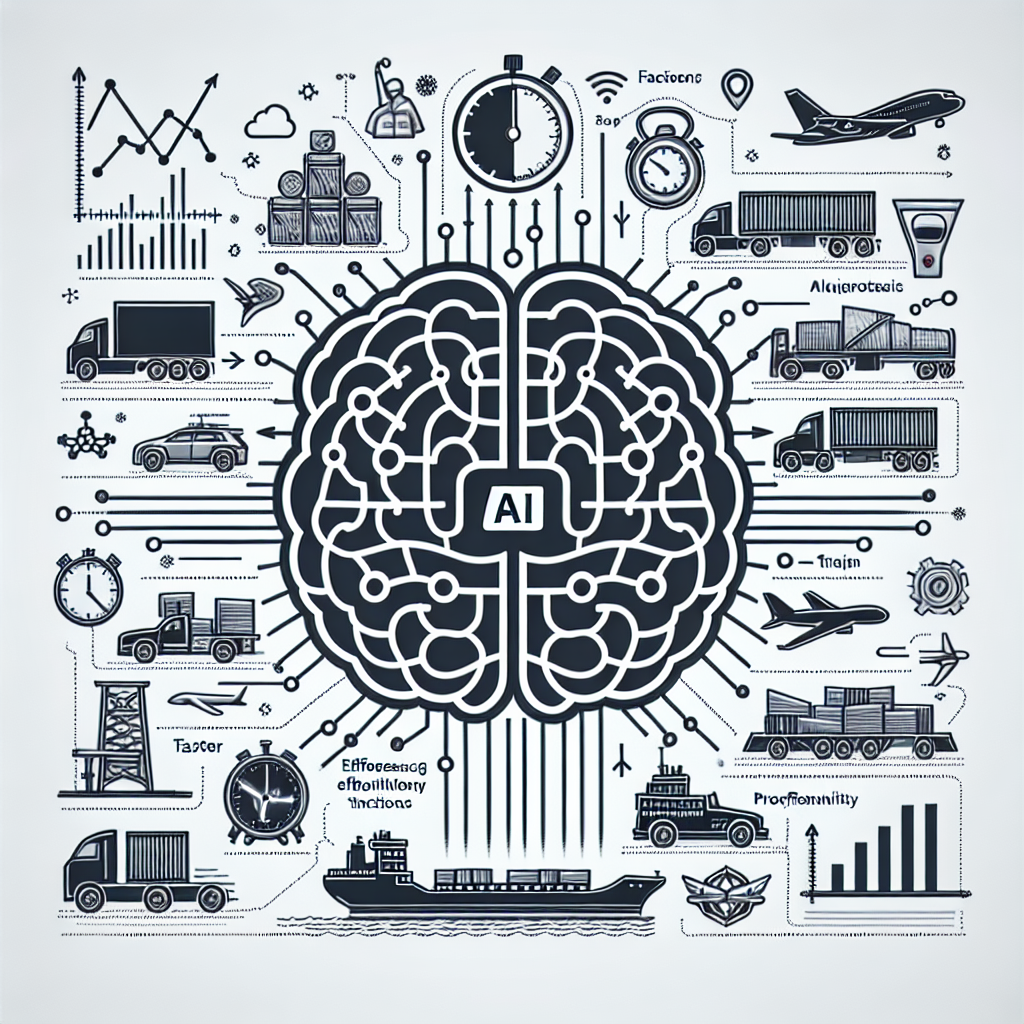In recent years, the transportation industry has seen a significant increase in the use of artificial intelligence (AI) for route planning and optimization. This technology has revolutionized the way companies manage their logistics, resulting in increased efficiency, reduced costs, and improved customer satisfaction. In this article, we will explore the various benefits of AI for route planning and optimization in transportation.
1. Improved Efficiency: One of the most significant benefits of AI in route planning is the ability to optimize routes in real-time. AI algorithms can analyze vast amounts of data, such as traffic patterns, weather conditions, and delivery schedules, to determine the most efficient route for each vehicle. This results in shorter delivery times, reduced fuel consumption, and lower operational costs for transportation companies.
2. Cost Savings: By optimizing routes, AI technology can help transportation companies save money on fuel, maintenance, and labor costs. Companies can also reduce the number of vehicles needed to deliver goods, leading to further cost savings. Additionally, AI can help companies avoid costly delays and penalties by providing accurate delivery estimates and rerouting vehicles in case of unexpected events.
3. Improved Customer Service: AI-powered route planning can help companies provide better customer service by ensuring on-time deliveries and reducing the risk of errors. Customers appreciate timely deliveries and accurate tracking information, which can lead to increased customer loyalty and repeat business. AI can also help companies provide more accurate delivery estimates, leading to better communication with customers.
4. Sustainability: AI route planning can also help transportation companies reduce their environmental impact by optimizing routes to minimize fuel consumption and emissions. By reducing the number of vehicles on the road and optimizing delivery schedules, companies can lower their carbon footprint and contribute to a more sustainable transportation industry.
5. Scalability: AI technology is highly scalable, meaning it can be easily adapted to meet the needs of transportation companies of all sizes. Whether a company operates a small fleet of vehicles or a large logistics network, AI route planning can help optimize routes and improve efficiency. This scalability allows companies to grow their operations without the need for significant investments in infrastructure.
6. Real-Time Monitoring: AI-powered route planning systems can provide real-time monitoring of vehicles and deliveries, allowing companies to track the status of their shipments and make adjustments as needed. This real-time visibility can help companies respond quickly to unexpected events, such as traffic jams or accidents, and reroute vehicles to minimize delays.
7. Data Analysis: AI technology can analyze vast amounts of data to identify trends and patterns that can help companies make more informed decisions about route planning and optimization. By analyzing historical data, AI can help companies predict future demand, optimize delivery schedules, and identify opportunities for cost savings.
FAQs:
Q: How does AI route planning work?
A: AI route planning uses algorithms to analyze data such as traffic patterns, weather conditions, and delivery schedules to determine the most efficient route for each vehicle. These algorithms can optimize routes in real-time and adjust to changing conditions to ensure timely deliveries.
Q: Can AI route planning help reduce costs for transportation companies?
A: Yes, AI route planning can help transportation companies save money on fuel, maintenance, and labor costs by optimizing routes and reducing the number of vehicles needed for deliveries. This can result in significant cost savings for companies of all sizes.
Q: Is AI route planning scalable for small transportation companies?
A: Yes, AI route planning is highly scalable and can be adapted to meet the needs of small transportation companies. Whether a company operates a small fleet of vehicles or a large logistics network, AI technology can help optimize routes and improve efficiency.
Q: How can AI route planning help improve customer service?
A: AI route planning can help transportation companies provide better customer service by ensuring on-time deliveries, reducing the risk of errors, and providing accurate tracking information to customers. This can lead to increased customer loyalty and repeat business.
In conclusion, AI technology has revolutionized route planning and optimization in the transportation industry, offering a wide range of benefits for companies of all sizes. From improved efficiency and cost savings to better customer service and sustainability, AI-powered route planning can help companies streamline their operations and stay competitive in a fast-paced industry. By leveraging the power of AI, transportation companies can optimize their routes, reduce costs, and provide better service to their customers.

